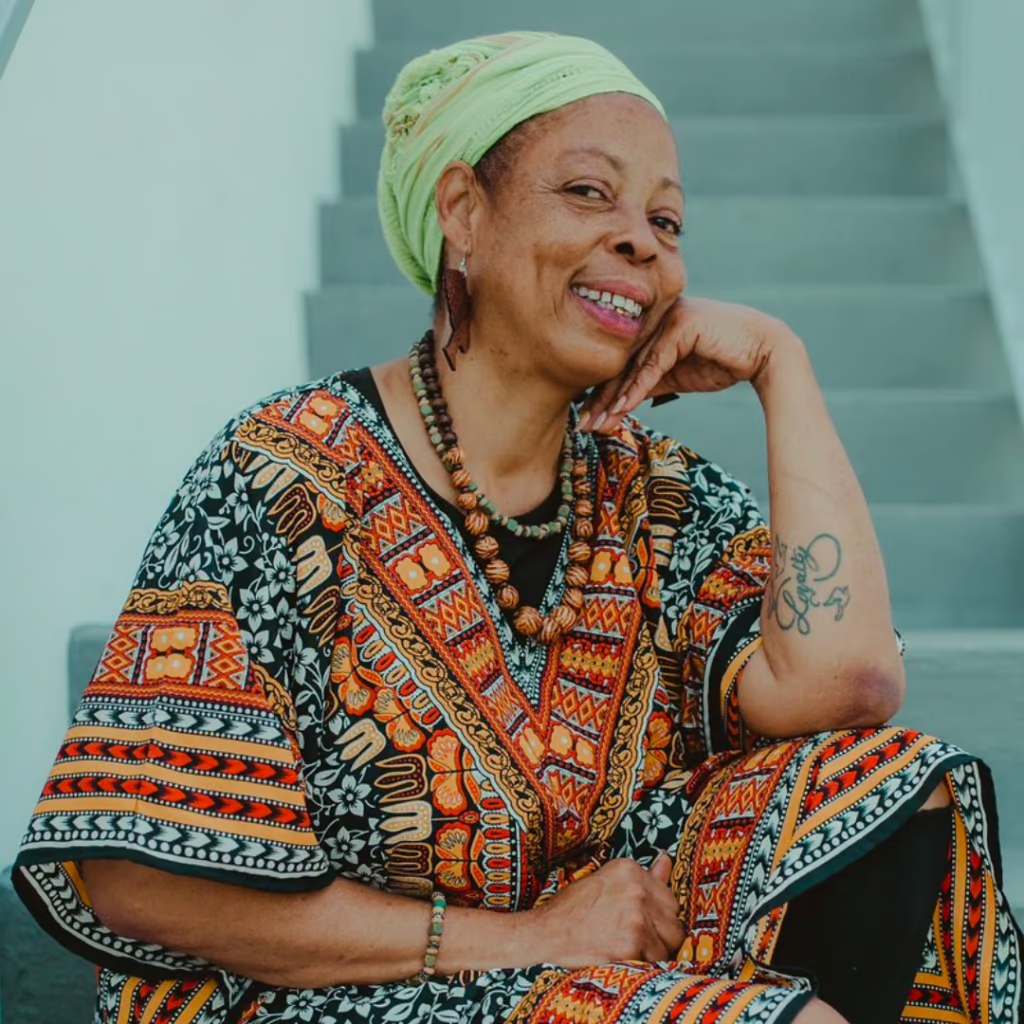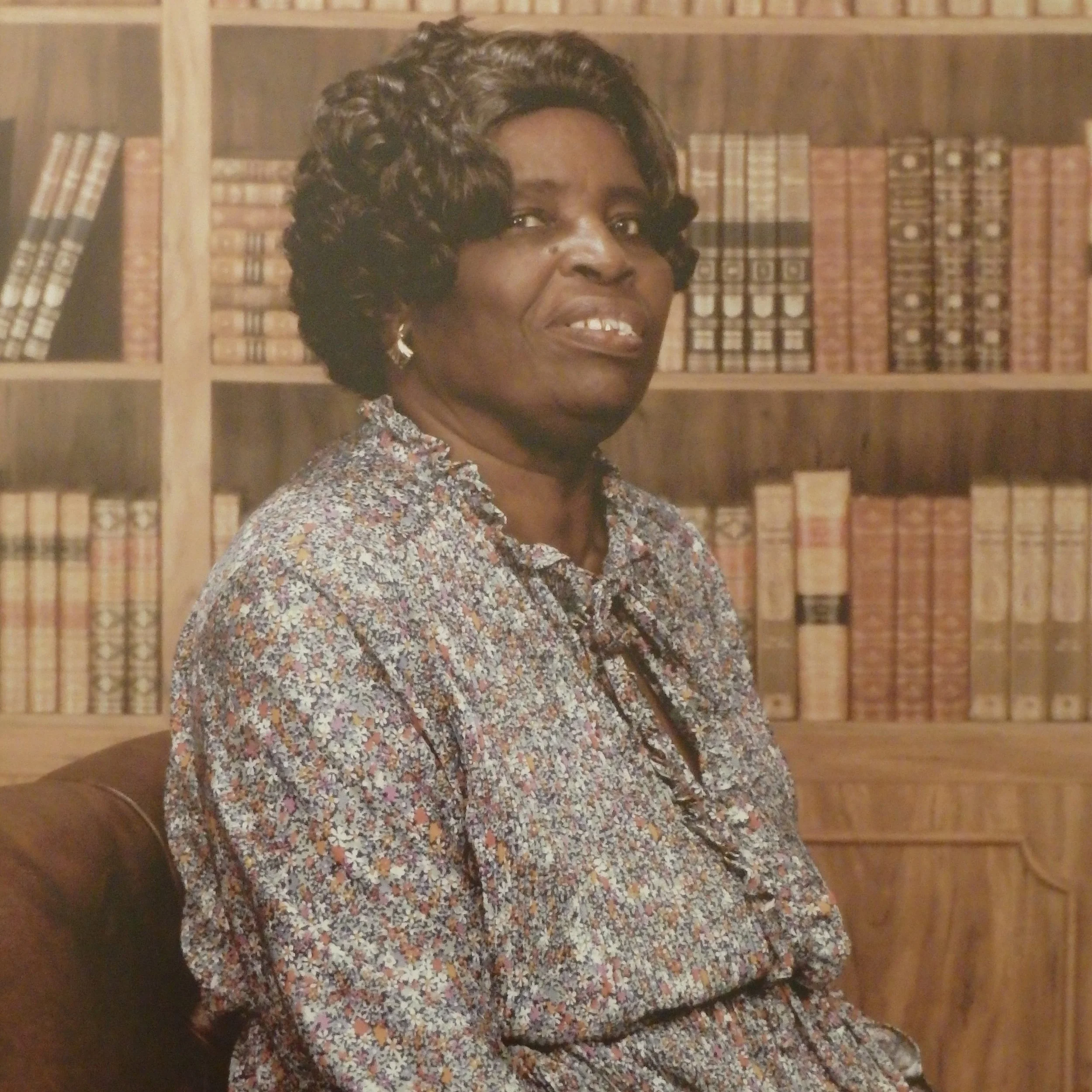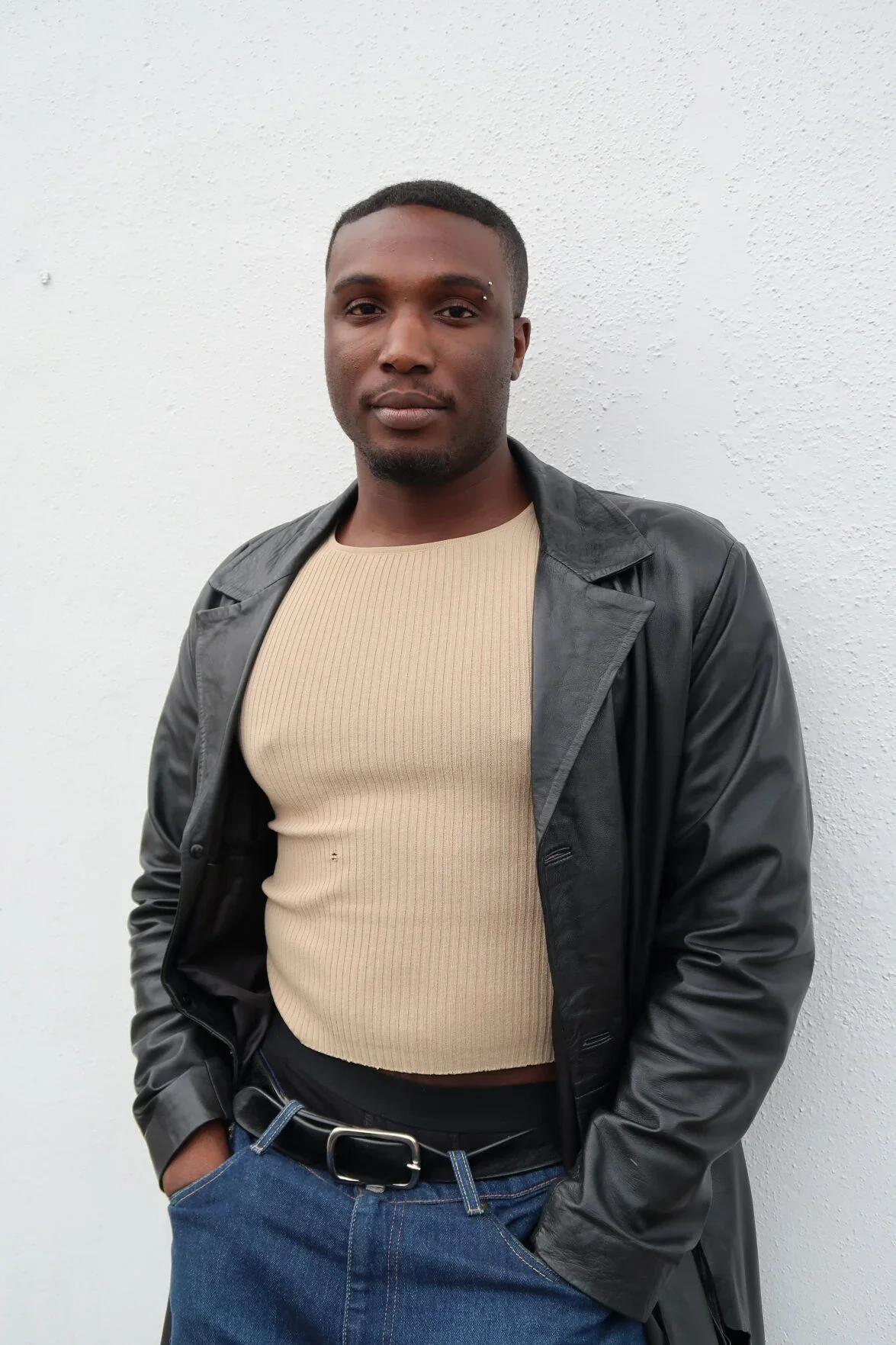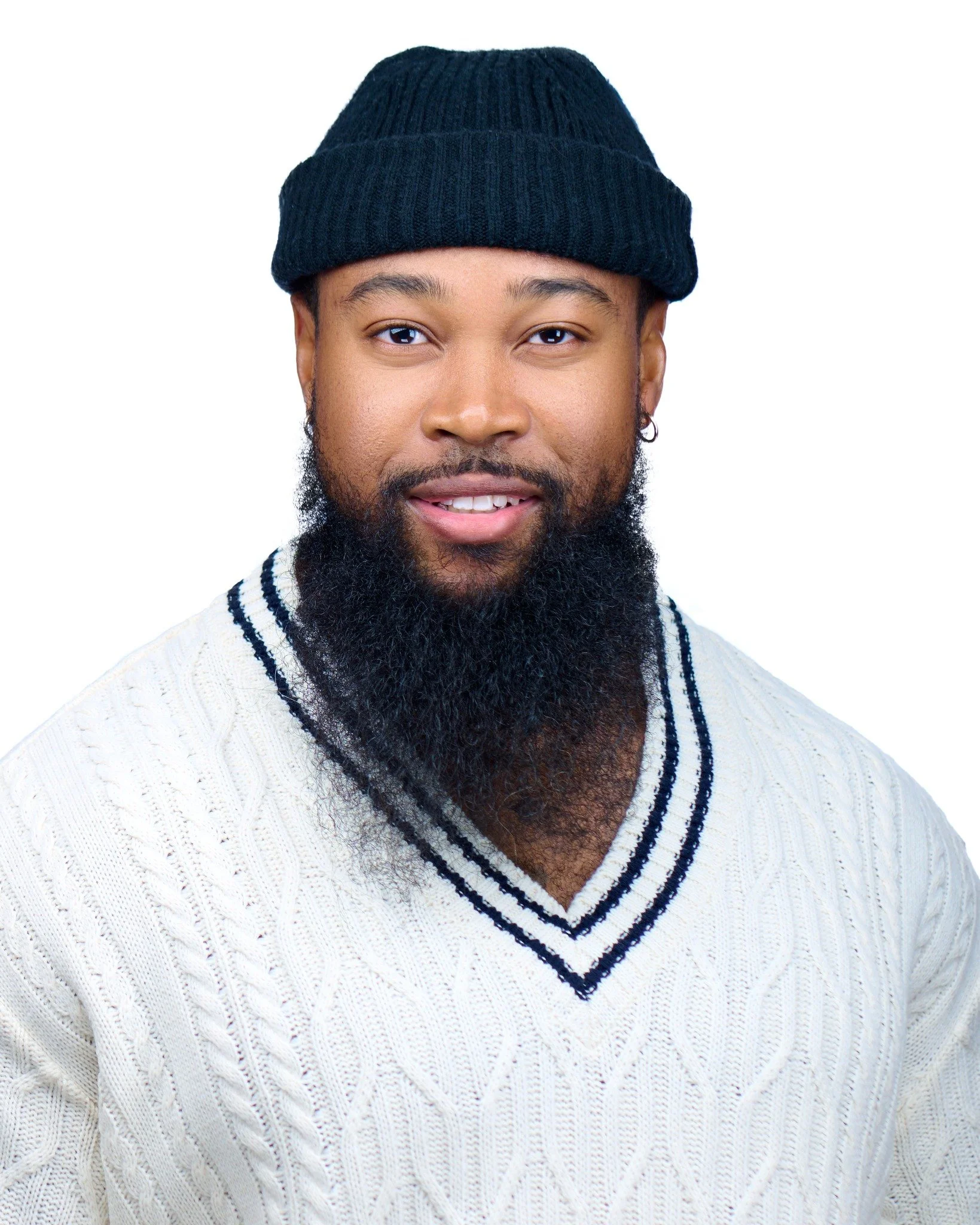
the back supper
For this year’s Black Supper, we hold space for #OurLocalIcons—both the ancestors whose shoulders we stand on and the living leaders who continue to shape South Florida’s movement landscape.
iconic.
Paulette Richards
Founder of Women in Leadership Miami and the Liberty City Climate & Me Program, and creator of the term ‘Climate Gentrification’.
Paulette has been a resident of Liberty City for over 45 years and founded Climate & Me along with the Climate Change Art Contest as a way to introduce the ideas to local students and get conversations started at home and among their peers
Paulette has seen first hand the impact of climate gentrification. She has witnessed aggressive and predatory buyers attempting to buy up Liberty City homes for a fraction of their worth, the flight of neighbors no longer able to afford the skyrocketing rents, and even former residents experiencing homelessness due to displacement from the growing epidemic of climate gentrification.
In the face of this she has continued to be an activist, organizer, and community leader. Through her involvement in programs promoting equitable and affordable housing, leading women empowerment workshops and mentorship programs, and her commitment to educating the next generation on the growing threat of climate change, she has been and continues to be a pillar of the community.
Max Rameau
Organizer/Founder of Take Back the Land Coalition
Max Rameau is a Haitian born Pan-African theorist, campaign strategist, organizer and author.
While a student in the Washington, DC area, Max was introduced to Black Nationalist and Pan-Africanist theory. After moving to Miami, Florida in 1991, he began organizing around a broad range of human rights issues impacting low-income Black communities, including Immigrant rights (particularly Haitian immigrants), economic justice, LGBTQ rights, voting rights, particularly for ex-felons and police abuse, among others.
As a result of the devastating impacts of gentrification taking root during the housing "boom," in the summer of 2006 Max helped found the organization which eventually became known as Take Back the Land, to address 'Land' issues in the Black community. In October 2006, Take Back the Land seized control of a vacant lot in the Liberty City section of Miami and built the Umoja Village, a full urban shantytown, addressing the issues of land, self-determination and homelessness in the Black community.
In October 2007, Take Back the Land initiated a bold campaign that sparked a national movement: "liberating" vacant government owned and foreclosed homes and moving homeless families into them. In addition, the organization began waging "eviction defenses" by physically blockading homes to prevent police from evicting families. The local organization inspired a national version, the Take Back the Land- Movement, a trans-local network of organizations engaged in land liberation and eviction defense in pursuit of the human right to housing and community control over land.
As important as the work of providing housing to families in need, one of Take Back the Land's central contributions to the movement is shifting the conversation from merely foreclosures and mortgage principle to community control over land, the human right to housing and employing the lense of race, gender and class.
In 2008, Max authored the book Take Back the Land, recounting the experiences and political theory behind the Umoja Village. The book has been used in several colleges and universities.
Max is an organizer with Pan-African Community Action and travels the country facilitating workshops, engaging in campaign strategy sessions and developing models for community control over land and the human right to housing.
Max Rameau continues to develop movement theory and is currently working on a book on Community Control Over Police.
Doris Ison
Public Health Pioneer
Doris Ison was born in 1908 in the Bahamas. Her family moved to Florida City, an area in South Miami-Dade, when she was three. There were no schools for Black children in South Dade when she was coming up, so she, like many Black kids (older elementary through high school ages) worked picking beans and tomatoes in the agricultural fields.
Ison experienced the medical racism of segregated Miami-Dade when her mom passed away from intestinal flu. Ison was a pre-teen and the oldest of six kids then. There was no doctor in Florida City to treat her mom and by the time one would be able to come from Homestead, the nearest city, it was too late. “I’ve always felt my mother could have been saved if only I had a hospital to take her to,” she later told a reporter.
Ison would go on to be a fierce advocate for public health in South Dade and an all around community leader. She cared deeply about the poor health outcomes for Black and Mexican farmworkers in South Dade.
When a migrant clinic finally opened in South Dade, three years after Martin Luther King Jr. 's death, she and Mexican community leaders agreed to name it the Martin Luther King Jr. Clinica Campesina. Ison served as a board member.
Community Health of South Florida, Inc (CHI) around that time was established making it the second community health center in Miami-Dade. They took over managing the migrant clinic that served Black and Mexican farmworkers and Ison became a board member there. Ison remained active continuing to advocate for better health facilities because too many people died trying to make the trip from South Dade all the way to Jackson Hospital in the City of Miami.
CHI built a comprehensive health center in Goulds in 1971 in part because of the advocacy of Doris Ison. In 1976 the center was renamed for her - the Doris Ison Health Center. She was 67 at the time. Residents of South Miami-Dade who have ever used this comprehensive health center in Goulds, have Doris Ison to thank—a Black woman and a former farmworker.
Akia Dorsainvil
Cultural Organizer/DJ Pressure Point
Akia Dorsainvil also known as DJ (Pressure Point) is a cultural worker, programmer, and transdisciplinary artist based in Miami Florida. His work aims to shed light on the beauty, talent, and brilliance of Black queer folks.
As one of the founders of the Black queer collective Masisi, he’s been able to provide programming that specifically highlights the beauty of the diaspora throughout time but with a focus on the Caribbean.
With His background being of Haitian and African American ancestry it fuels his creative process by tracing the lives of those Masisi is a platform/event-focused organization based in Miami, FL whose mission is to share the art, life, and lineage of Black queer folks of the Americas and the Caribbean diaspora through art and music
David Jackson
Youth Advocate/Founder Project T.H.U.G
David L. Jackson is a prominent educator, curriculum developer, workshop facilitator, author, and co-founder of The Project T.H.U.G Fellowship program. Raised in Miami Dade County by Jamaican immigrant parents, Jackson is committed to promoting equity in educational access.
His academic journey includes earning the prestigious Posse Academic and Leadership Scholarship, completing an undergraduate degree in history and secondary education at Syracuse University, and conducting research in Paris. As a student activist, Jackson advocated for marginalized voices.
As an international workshop facilitator and keynote speaker, Jackson engages diverse audiences, including juvenile sector individuals, college students, and educators. He currently serves as Associate Director of Learning and Delivery at Digital Promise Global, focusing on equitable technology integration in education.
Jackson is also an accomplished author, known for his memoir “UNTITLED: Welcome To My Mind,” which explores identity. His primary passion lies in co-founding The Project T.H.U.G fellowship program, aimed at nurturing young Black men to become leaders with integrity and service-oriented mindsets.
Carl Juste
Photojournalist
Under the threat of persecution, Haitian-born Carl–Philippe Juste and his politically active family were forced to flee their homeland in 1965, eventually settling in Miami’s Haitian community. Since 1991, he has worked as a photojournalist for The Miami Herald.
Juste has covered national and international stories for the Herald, including assignments in Haiti, Cuba, Pakistan, Afghanistan and Iraq. In addition, he has worked on various documentary projects for the HistoryMiami Museum, including At the Crossroads: Afro-Cuban Orisha Arts in Miami (2001), South American Musical Traditions in Miami (2002), and Haitian Community Arts: Images by Iris PhotoCollective (2006-2007). All were funded in part by the National Endowment for the Arts.
Juste has been a guest lecturer for various national and international organizations and universities. He has received numerous awards for his work, including the Robert F. Kennedy Journalism Award and a shared Pulitzer Prize as a member of the Miami Herald staff. His work has been exhibited in Cuba, Dominican Republic and The United States. As part of his ongoing independent work, in 1998, Juste co-founded Iris Photo Collective.
In 2016, Juste won a prestigious Knight Arts Challenge grant to complete Havana, Haiti: Two Cultures, One Community, a book and exhibit of photographs and essays about Cubans’ and Haitians’ lives and shared humanity. This project is further supported by two Knight Miami Arts Champions: columnist and author Dave Barry and Perez Art Museum Director Franklin Sirmans, along with a grant from the Green Family Foundation.





